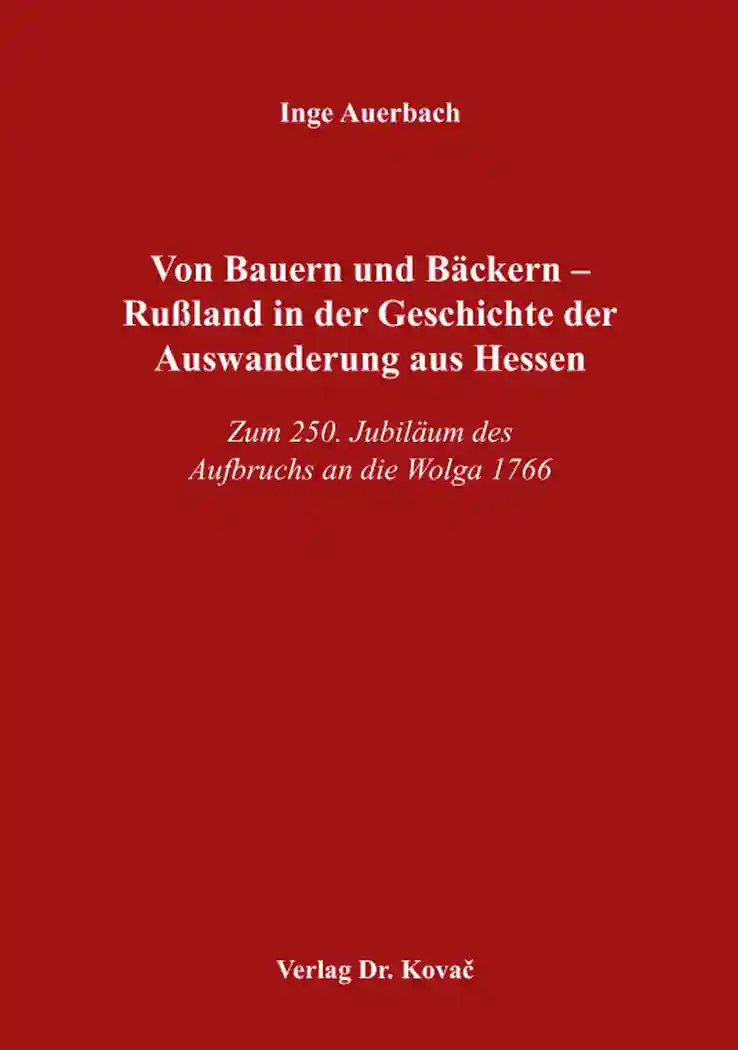Inge AuerbachDas Gemeine Wohl im Osten Europas Anfang des 17. Jahrhunderts
Schriften zur Sozial- und Wirtschaftsgeschichte, volume 39
Hamburg 2025, 524 pages
ISBN 978-3-339-14314-3 (print)
ISBN 978-3-339-14315-0 (eBook)
About this book deutschenglish
Whoever asks why democracy could successfully exported to some countries but not to others will come up against differences in mentality that derive from varied historical experiences. There is such a thing as „collective memory“, occasionally made up of very old elements.
This book aims to investigate transnational traits of East-Middle European societies at the turn of the 16th and 17th centuries, all of which existed in a system of divided sovereignty (dominium politicum et regale/Ständestaat). Institutions, which at the time werde to be found in all of these states, have since disappeared. Personal privileges of the nobility developed into human rights for all. Other ideas proved longer lasting – especially politicaI concepts that enabled compromise to be achieved between rulers and their subjects. The well-beeing of society, the nation, the fatherland, for Poland the Rzeczpospolita are up to now elements of political propaganda. In the period studied here deputies in the parliaments were accustomed to defer their own financial interests in favour of society, and they developed methods of bargaining ending in compromise. That Behaviour expected from a nobleman had older roots. The central concept of common good (bonum commune) represents a particular feature of the Roman-Catholic cultural landscape, missing in Muscovy. The Osman realm had a different, but comparable concept of welfare for all subjects (Circle of justice).
We can ask, whether self iterest took precedence over the common interest in Hungary in times of peace and war as during the Turkish war of 1593-1606. Among Christians a narrative of an idealized Osman realm supported a desire of reforms strenghtening the sovereigns power, absolutism. The Turks at the same time saw the power of their realm waning and demanded reforms, too. There were in Transylvania even supporters of a constitution akin to that of Venice. Everywhere there were people, who opted out of society, radical Christians who believed - as had the very first Christians - in the imminent coming of the end of the world, and who speculated that they, as the righteous, would be shown mercy at the last judgement. In the East-Middle European nobility religious tolerance was taken for granted. There were more important things than the Christian denomination to which one belonged. (Richard Hennesy, Übers.)
Keywords
AbsolutismusBöhmenDonaufürstentümerGeschichteHabsburgerKosakenMentalitätsgeschichteMoscovienPolen-LitauenReformationStändestaatTatarenTürkengefahrUngarnYour book at Dr. Kovač Publishing House
Weiteres Buch der Autorin
Von Bauern und Bäckern – Rußland in der Geschichte der Auswanderung aus Hessen
Zum 250. Jubiläum des Aufbruchs an die Wolga 1766
Hamburg 2017, ISBN 978-3-8300-9466-1 (Print) | ISBN 978-3-339-09466-7 (eBook)

